Preparation for Eidul Fitr and Sadaqatul Fitr
By: Khursheed Alam Dawood Qasmi
The Arrival of Eid:
The last ten days of Ramadan are passing and we are eagerly waiting to celebrate Eidul Fitr as a joyous conclusion to this blessed month. How wonderful it would be, if we firmly decide to celebrate this great occasion in accordance with the Sunnah and guidance of our beloved Prophet Muhammad (saws). That is, we should observe Eid in the manner that our Prophet Muhammad (saws) did and prepare for it accordingly!
The Night of Eid:
As soon as Ramadan ends, the night of Eid begins. The virtue of this night has been mentioned in Hadith. Sayyiduna Abu Umamah (ra) narrates that those who stay awake on the night of Eid with the intention of seeking reward and engages in worship, their hearts will not die on the Day when hearts will perish. Mujahid (Rahimahullah) states that in terms of virtue, the night of Eidul Fitr is similar to the nights of the last ten days of Ramadan. This night is also called “Laylatul Ja’izah”—the Night of Reward. (Qiyam Ramadan by Muhammad bin Nasr Al-Marwazi, p. 262)
Day of Eidul Fitr:
The Messenger of Allah (saws) said: On the day of Eidul Fitr, angels stand at the paths and call out: “O Muslims! Proceed towards your Merciful Lord, who grants immense goodness and rewards abundantly. O servants of Allah! You were commanded to pray at night, and you fulfilled it. You were commanded to fast during the day and you observed it. You obeyed your Lord, so now come and receive your rewards.” Then, when the people complete their Eid Salaah, a caller announces: “Your Lord has forgiven you. Return to your homes with guidance. Today is the ‘Day of Reward’ (Yawmul Ja’izah).” (Al-Targhib Wa Al-Tarhib by Al-Mundhiri, Hadith: 1659)
Sunnahs and Recommended Acts on the Day of Eid:
To make the most of this blessed occasion, it is recommended to observe the following acts and etiquettes on Eid day:
>Perform Ghusl (ritual bath) to cleanse oneself before the prayer.
>Use Miswak (tooth-stick) for oral hygiene.
>Wear good, permissible clothing as a sign of gratitude and celebration.
>Apply fragrance to enhance personal cleanliness.
>Adorn oneself appropriately while staying within the limits of Shariah.
>Wake up early to take care of personal needs and reach the Eid prayer ground (Eidgah) on time.
>Eat something sweet (preferably an odd number of dates) before leaving for Eidul Fitr Salaah.
>Pay Sadaqatul Fitr before heading to the Eid Salaah.
>Perform Fajr Salaah in the local mosque.
>Reach the Eidgaah walking, if possible.
>Take one route to the Eidgah and return via another, following the practice of the Prophet (saws).
On Eidul Adha Day, these practices remain the same, with one key difference: one should not eat anything before the Eidul Adha Salaah. The Companions (ra) would even prevent their older children from eating before the Salaah and would delay feeding younger children until after the Salaah.
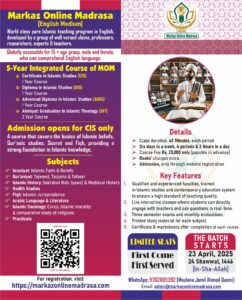
When the Prophet Muhammad (saws) left his home for Eidul Fitr Salaah, he (saws) would humbly recite: “Allahumma inni kharajtu ilayka makhrajal ‘abd al-dhalil.” (Translation) “O Allah! I have come out to You in the manner of a humble servant.” Additionally, he (saws) would recite Takbir along the way—softly on Eidul Fitr and loudly on Eidul Adha—as a proclamation of gratitude and praise for Allah: “Allahu Akbar, Allahu Akbar, La Ilaha Illallah, Wa Allahu Akbar, Allahu Akbar Wa Lillahil Hamd.” (Translation) “Allah is the Greatest, Allah is the Greatest. There is no god but Allah. Allah is the Greatest, Allah is the Greatest, and all praise belongs to Allah.” (Abridged from Al-Binayah Sharhul Hidayah: 3/101)
The Essence of Sadaqatul Fitr:
Sadaqatul Fitr serves a dual purpose in Islam. Firstly, it acts as a means of purification, compensating for any shortcomings, idle talk, or inappropriate behaviour that may have occurred while fasting. Secondly, it ensures that the poor and needy can also partake in the joy and celebrations of Eid. Without this act of charity, there is a risk that only the wealthy would celebrate Eid; while the less fortunate remain in distress, unable to experience the happiness of this blessed day. Thus, Sadaqatul Fitr fosters a sense of community, compassion, and shared joy among all Muslims.
A Matter of Faith and Responsibility:
It goes against the spirit of a Muslim’s faith and sense of honour to celebrate Eid joyfully with their children; while a poor and destitute Muslim remains sorrowful, unable to afford even the basic necessities for the occasion. It is heart-breaking to think that due to financial hardship, a fellow believer may feel so disheartened that he hesitates to step outside on this day of happiness. Helping such needy brothers and sisters, especially on Eid Day is a moral and religious duty upon every well-off Muslim. Those whom Allah has blessed with wealth should extend their generosity by giving gifts, offering charity and using their Zakaah and Sadaqatul Fitr to support those in need. By doing so, they will not only spread joy; but also attain honour and acceptance in the sight of Allah.
Who is Obligated to Pay Sadaqatul Fitr?
The obligation of Sadaqatul Fitr is clearly stated in a Hadith narrated by Ibn Umar (ra), where he reports that the Prophet Muhammad (saws) said: “The Messenger of Allah (saws) made Sadaqatul Fitr obligatory upon every Muslim, whether slave or free, male or female, young or old. The amount prescribed is one Sa’a (a unit of measurement) of dates or one Sa’a of barley, and he commanded that it be given before people go out for the Eid Salaah.” In modern terms, one Sa’a is approximately 3.149 kilograms (3 kg, 149 g, and 280 mg) of staple food items such as dates, barley, or their equivalent. This charitable obligation ensures that every member of the Muslim community, regardless of their financial status, can share in the joy of Eid.
Who Must Pay Sadaqatul Fitr?
Sadaqatul Fitr is obligatory on every Muslim who, on the day of Eidul Fitr, possesses wealth beyond their basic needs that is equal to or greater than 87.5 grams of gold, 612 grams of silver or the equivalent monetary value of either of them. Another condition that makes Sadaqatul Fitr obligatory owns excess belongings (beyond essential needs) that meet or exceed the Nisab (minimum wealth threshold). These assets do not necessarily have to be for trade; for instance: A second house beyond one’s primary residence or extra land beyond what is needed for personal use.
Difference between Sadaqatul Fitr and Zakat:
Unlike Zakaah, which requires one full year to pass over the Nisab wealth, Sadaqatul Fitr becomes obligatory immediately on the morning of Eidul Fitr, if a person meets the wealth criteria. It should be also noted that a person obligated to pay Sadaqatul Fitr must also give it on behalf of his minor children (if they were born before the dawn of 1st Shawwal). This ensures that even dependents are included in the collective responsibility of supporting the less fortunate on Eid day.

Amount and Timing of Sadaqatul Fitr:
The prescribed amount for Sadaqatul Fitr is 1.633 kilograms (approximately 1.6 kg) of wheat per person (or, for caution, 2 kilograms), 3.266 kilograms (approximately 3.3 kg) of barley, raisins or dates (or, for caution, 3.5 kilograms). Alternatively, one can give the equivalent value of it. In essence, it is sufficient to provide one of the above items or their monetary equivalent based on their weight. Islamic scholars have specified that Sadaqatul Fitr should ideally be given before the Eid Salaah on the day of Eid. However, it is also permissible to pay it one or two days prior to Eid to ensure that the needy can meet their requirements during the festive occasion. It is important to avoid delaying the payment of Sadaqatul Fitr. If someone fails to give it before Eid-day, he should still pay it afterward. The obligation of Sadaqatul Fitr doesn’t lapse due to late payment; it must still be fulfilled.
Greetings on Eid Day:
There is no harm in exchanging Eid greetings, and this practice is supported by the action of the Prophet Muhammad (saws) and his Companions (ra). It is preferable to offer Eid greetings using the sentence: “تَقَبَّلَ اللهُ مِنَّا وَمِنْكَ” (May Allah accept the good deeds from us and you!) Khalid ibn Ma’dan (ra) narrated that on the day of Eidul Fitr, he met Wathilah ibn al-Asqa’ and said: “تَقَبَّلَ اللهُ مِنَّا وَمِنْكَ.” Wathilah (ra) responded: “نَعَمْ، تَقَبَّلَ اللهُ مِنَّا وَمِنْكَ.” (Yes, may Allah accept the good deeds from us and you!) Wathilah (ra) then recalled that he had also greeted the Prophet Muhammad (saws) with the same words on Eid, to which the Prophet (saws) replied: “”نَعَمْ، تَقَبَّلَ اللهُ مِنَّا وَمِنْكَ. (Al-Sunan Al-Kubra by Al-Bayhaqi, 3/446, Hadith No: 6294)
Procedure for Eidul Fitr Salaah and Khutbah:
Eidul Fitr Salaah consists of two Rak’ahs and is obligatory. It includes six additional Takbirs. Here is the method to perform the Salaah. Intention: When you stand for Salaah, make the intention for two Rak’ahs of Eidul Fitr Salaah along with the six additional Takbirs. Then Takbir Tahreemah: Raise your hands to your ears and say “Allahu Akbar” to enter into the Salaah, and then fold your hands. Now, recite the complete Thanaa. After Thanaa, say three additional Takbirs. For the first and second Takbir, raise your hands to your ears and then drop them without folding again. For the third Takbir, raise your hands to your ears and fold them. After the third Takbir, recite Surah Al-Fatiha followed by another Surah of your choice and complete the first Rak’ah like any other Salaah. In the second Rak’ah, recite Suratul Fatiha and another Surah, and then say the three additional Takbirs again. For each of the three Takbirs, raise your hands to your ears and drop them. For the fourth Takbir, do not raise your hands; instead, go into Ruku. Then complete the remaining portion of the Salaah as you do in any other Salaah. It should be noted here that Eidul Adhha Salaah is also of two Rak’ah and the method of the Salaah of Eidul Adhha is also the same. After both Eid Salaahs: Eidul Fitr and Eidul Adhha, it is Sunnah to deliver a Khutbah (sermon). If the Khutbah is not delivered, the Salah is still valid, but leaving out a Sunnah is a sin. Therefore, the Imam should deliver the Khutbah after the Eid Salaah. It is obligatory for those present to listen to the Khutbah quietly, so attendees should maintain silence during the sermon. (Al-Durr al-Mukhtar Wa Hashiya Ibn Abidin, 2/166)
Handshake and Hugging at the Eidgah:
After the prayers of Eidul Fitr and Eidul Adha, the practice of handshakes and hugging in the Eidgah (prayer ground) is considered a Bid’ah (innovation). It is important to clarify that engaging in this practice is not part of the Sunnah. If someone meets another person after a long absence and their first encounter happens to be after the Eid Salaah in Eidgaah, then shaking hands and hugging is acceptable in that context. However, it is inappropriate for individuals who arrive together from home or pray together Eid Salah, then following Salah, they rush towards each other for handshakes and hug each other. This behaviour is viewed as a form of innovation that strays from the established traditions of the Prophet Muhammad (saws). It is recommended to maintain the simplicity and sanctity of the occasion without indulging in practices not supported by the Sunnah.
Hazrat Maulana Mufti Syed Abdur Rahim Sahib Lajpuri (Rahimahullah) has explained the above example in details and has stated that it is an innovation. This is the text of the Mufti Sahib’s Fatwaa: “Meeting and embracing after the Eid Salah is not a Sunnah; rather, it is among the inventions of the people. From the Ahaadith, as far as known, there is no evidence for it. Shaking hands after a long absence and hugging after a prolonged absence is established. However, there is no evidence for this after Eid Salah. It is observed that colleagues who stood together in Salah greet each other and hug after the greeting and sermon, considering it a religious act; therefore, this is incorrect.” (Fatawa Rahimiyyah 2/111-112)
Hazrat Maulana Mufti Kifayatullah Sahib (Rahimahullah) states: “Hugging during Eid or shaking hands with the specific intention of Eid is not permissible according to Islamic law; rather, it is merely a custom.” (Kifayat al-Mufti: 3/302)
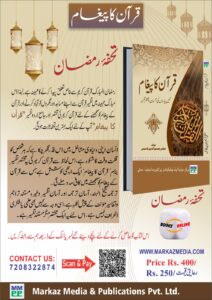
Hakeemul Ummah, Maulana Ashraf Ali Thanvi (Rahimahullah) has written a general principle regarding this issue. He writes: “The general principle is that the manner and form that the Prophet (saws) has determined for acts of worship should not be changed or altered. Since shaking hands is a Sunnah, it is thus part of worship. According to this mentioned principle, it is not permissible to exceed the established form and manner. Shaking hands is narrated from the Prophet (saws) at the time of the first meeting with consensus and at the time of farewell without consensus. Therefore, to propose any other occasion or opportunity for this, apart from these two times, constitutes a change in worship, which is prohibited. Thus, shaking hands after the two Eids (Eidul Fitr and Eidul Adhhaa) or after the five daily Salahs is considered disliked (Makruh) and an innovation (Bid’ah). It is mentioned clearly in Shami.” (Imdad al-Fatawi, Vol: 1/557)
Conclusion:
In conclusion, as Muslims, we should celebrate Eid in such a way that we do not stray from the principles of Shariah. In this regard, we have the teachings of our beloved Prophet Muhammad (saws) as our guide. We should observe Eid in the light of these teachings. We must avoid all forms of frivolity, innovations and deviations, especially on Eid day, which is a celebration of an important act of worship like fasting. We should not squander this day due to our wrong actions. If we celebrate Eid in accordance with Shariah and Sunnah, we will be rewarded for our observance of Eid, In Shaa Allah.


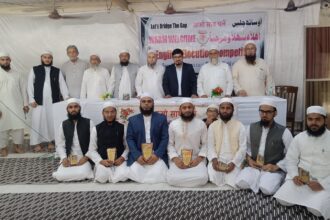
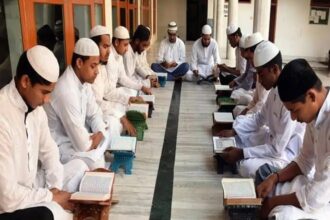
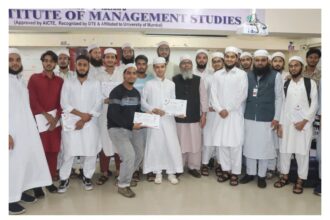



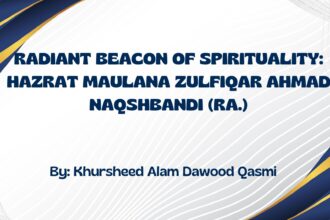
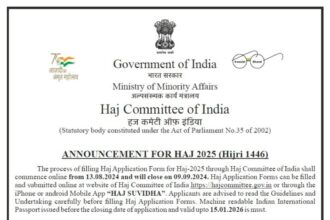
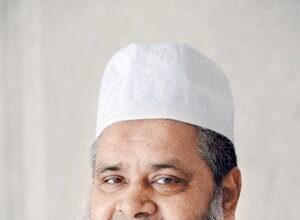
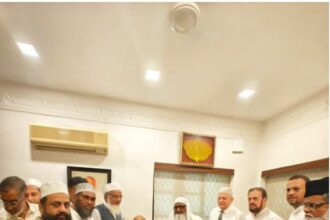
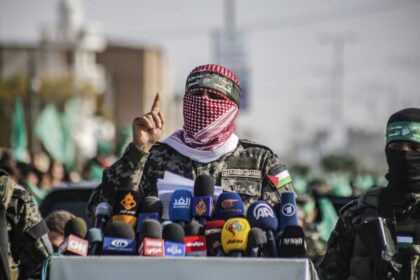
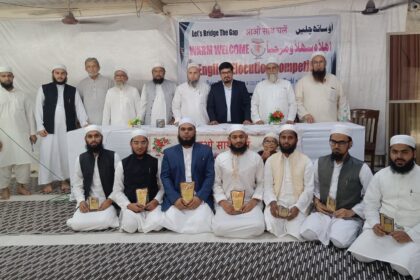
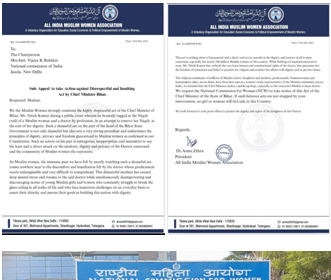
Great work! That is the kind of info that are supposed to be shared around the web. Disgrace on the search engines for now not positioning this put up higher! Come on over and consult with my website . Thanks =)